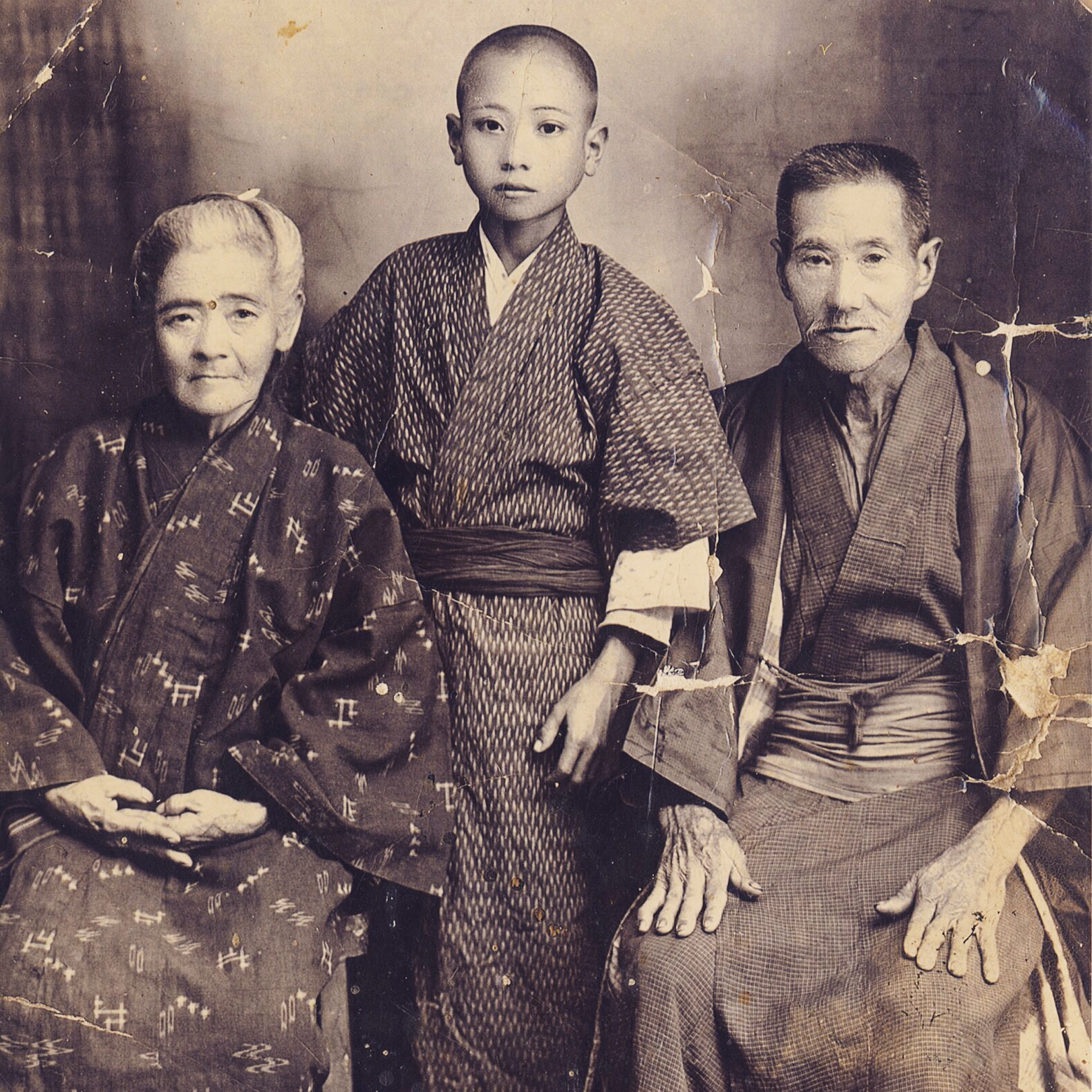
My grandfather with his grandparents, my great great grandparents, 1920’s.
Rise Up People: Redefining What It Means
by Joni Kamiya, Hawaii Farmers Daughter, April 12, 2015
My grandfather literally was dirt poor. His parents, my great grandparents, left Okinawa seeking a better life for their family and Hawaii was that opportunity. They left their familiar home to start a journey to make a better life for themselves. It’s a story that many of us here in Hawaii share irregardless of our ethnicity.
What helped to get my grandfather ahead and to provide for the family was hard work on the farm. He started off raising pigs, then onto dairy, and finally to producing vegetables and finally papayas. This was very hard and laborious but he did it for his family.
All of his kids including my dad was required to help on the farm. If he wasn’t on the farm, he was with his dad scouring the dump for metal hardware that might be usable again. It wasn’t fun to walk a dump but to a little kid, it was fun. If he wasn’t at either of the places, he was supposed to be at school.
My dad’s childhood as well as his time in the military, as a minority, taught him many lessons. He learned what it meant to work hard, do a quality job, respect the elderly, and make the family proud. He learned appreciation for what he had. Some of these values are ingrained into Asian culture, and local culture to some degree from the plantation days.
As a result of his upbringing, I too was raised with these values. I was raised in the old fashion way of having very strict parents with tough rules and high expectations. We were not to do anything to shame our family name and do our best to make the family proud. We were expected to get an education and go beyond what our parents achieved. That is my cultural upbringing.
It was stressed upon my siblings and I that we do better than our parents. They were the first generation of college graduates and we were expected to surpass them if we could. All of us did complete college with 3 of us getting master’s degrees. I paid for my own graduate education with loans and scholarships. This made my parents proud even though they never stated it to us. My dad would say, ” Well, that’s what I expected of them!”
When one comes from nothing, once you find the key to success, you embrace it. They key for our family was getting an education that set the foundation for my future. Education provided a wealth of opportunities and options. It opens your eyes to the world and what’s happening as well as gives one a strong base to critically evaluate the events around us.
My dad stressed to me that with this education, I had a responsibility to be a contributor to society. I always keep it in the back of my mind and exemplify this with volunteering with elder care organizations and advocating for my day job profession.
When I hear the slogans used by protests calling to “rise up,” I have a different concept in my mind. I see rising up as getting truly educated at a higher institution of learning and not via Google. Rise up as people who started from nothing and figure out ways to be a genuine contributor in this world. Embrace your cultural values and demonstrate it in all you do. It is each of our duty to make this world better through real education and using a factual basis to solve real world issues. Ask yourself if you have truly done your due diligence researching the issue to see the whole picture to voice your stance upon. Using misinformation doesn’t help the cause, it just weakens it.
The world already has too much discord and turmoil and adding more doesn’t improve anyone’s situation. Being steadfast in your beliefs drawn from misinformation doesn’t leave much in the way for collaboration. If you’re finding your information being challenged as false, be willing to accept it instead of fight on a weak stance. True discussions and dialogue are much more productive that way.
People can continue to take the literal course of action of rising up or take the symbolic meaning to rise up that can sustain itself from each generation to the next. We all have those choices and opportunities. Which path do you think will have the most impact with the issues at hand?
---30---